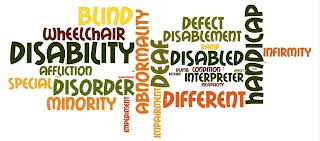 So, for those of you who aren't aware, I am very invested in volunteer work. I love volunteering. I frequently volunteer at the local community center of the Deaf, but I have another form of work in mind at the moment. Crop Because You Care (CBYC) is coming up at the end of February and if you don't know about it, this is your opportunity to learn more. Check out the links below and then I will tell you a bit more about Camp Spike and Wave.
So, for those of you who aren't aware, I am very invested in volunteer work. I love volunteering. I frequently volunteer at the local community center of the Deaf, but I have another form of work in mind at the moment. Crop Because You Care (CBYC) is coming up at the end of February and if you don't know about it, this is your opportunity to learn more. Check out the links below and then I will tell you a bit more about Camp Spike and Wave.The Official Crop Because You Care site, where you can learn more about CBYC, and the Epilepsy Association of Utah (EAU), as well as register for the event. (It's only $25! for a full day of scrapbooking for a good cause!)
The Crop Because You Care blog, where the entirety of the blog is dedicated to the sole purpose of giving information about CBYC. (Psst! By the way, did you know, Stacy Julian is going to be attending this year's Crop Because You Care?! Click on one of the above blog links to learn more about her!)
Ok, so now you've had the chance to become clued into what the awesome scrapbooking event, Crop Because You Care, is. If you haven't diverted your attention from my blog thus far, that's ok too. So, you may be wondering what the "scrap" this is all about - and what exactly you are cropping and caring for when you attend CBYC. Well, all proceeds of CBYC benefit the Epilepsy Association of Utah (EAU). From there, a large amount of those proceeds go to funding a summer camp for pre-teens & teens who are affected by epilepsy, a seizure disorder. Here is a little blurb about the camps offered from the National Ability Center, where the kids go for Camp Spike and Wave.
Each summer the National Ability Center offers camps packed with fun, adventure and activities that will challenge campers to discover their abilities, while making friendships to last a lifetime. These activities encourage campers to make friends, build social skills, strengthen physical agility and develop recreational skills while having more fun than they've ever had before.
About eleven months ago, I attended Crop Because You Care. A little over six months after that, I had the opportunity to attend Camp Spike and Wave as a volunteer.
I was able to assist in so many awesome things that the kids did at camp. Let me direct you to a few pictures so you can see the different types of things we did.
So, as you can see, we did so many exciting things - especially things that people with epilepsy cannot do in a "normal" situation. The kids rode horses. They braved the high ropes course, which includes elements such as the catwalk, bosman swings, tango bridge, cargo net and many more! They went on hikes (which some of them cannot do in a "normal" situation because temperature, whether it be hot or cold, are triggers for their seizures). They climbed rock-walls. They had fun with archery. And of course, we did all of the traditional camp things, such as crafts, games, becoming better friends, and eating s'mores. It seriously cannot get much better than that (not to mention that we were in a really nice cabin!)
I had a great time at Camp Spike and Wave, I think what I liked more than anything was the opportunity to have fun with kids (and other adults) who are affected by epilepsy. A sense of camaraderie was there, knowing that these people have dealt with a lot of the same problems I have. (Yes, I have generalize epilepsy) The same stigma we experience, the same types of exhaustion we feel at times, the side effects that come with medication and the knowledge that while we were together we were totally free to be ourselves and not be worried about what others would think if someone had a seizure.
So, you can see why this is something that is very near and dear to my heart. I hope that I've given you the chance to understand why CBYC is such an important event to attend. And not to mention, FUN!
Thanks everyone,


